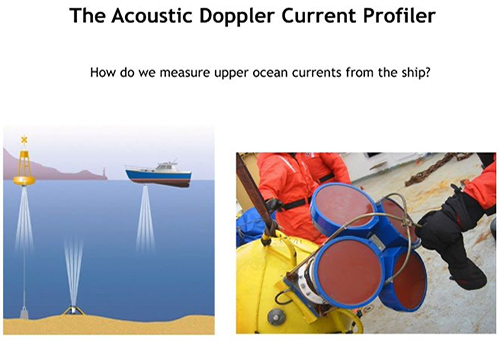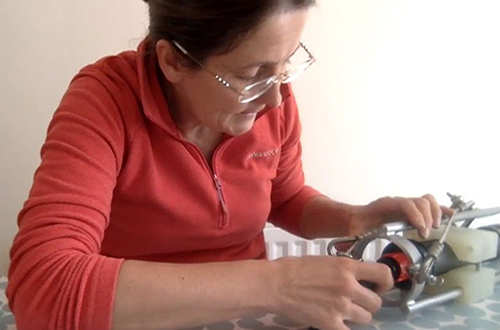- Group size: 12
- Teaching type: Blended online resources and remote live sessions
- Division: MPLS
- Subject: Earth Sciences - Oceanography
- Tools: Canvas, Zoom, Gather.town, Kahoot
Delivery
Every year in mid-September, Oxford fourth year undergraduates do a week-long field trip that includes two days aboard a research vessel as well as coastal surveys on smaller boats. In 2020 a virtual trip was arranged with the help of colleagues from the Bermuda Institute of Ocean Sciences (BIOS) and the chief scientist and field technicians on the vessel. The BIOS staff recorded video footage designed to address the learning objectives, and the Oxford team designed relevant accompanying exercises and recorded demonstrations. Hardcopies of the field guide was sent to the students in advance of the course to make notes and complete the exercises.
All materials were posted on Canvas, including ORLO reading lists, requirements for the group activities, and links to the live sessions (the Zoom link remained constant). Each day was planned carefully to include reading activities, small group work and presentations in the morning (4 or 5 students per group), live sessions and viewing recordings in the late morning or early afternoon, followed by the allocation of group work. In the evenings, students worked on their presentations for the following day.
Strengths
Student feedback was very positive, particularly about the field recordings, the daily live sessions and the small groups which were run on Gather. Gather is a ‘video calling space’ that allows people to ‘hang out’ in small groups. Students enjoyed being able to drop into this ‘virtual lounge’ and ask the tutors questions in a spontaneous and informal way.
Different activities were organised in the evenings, such as a pub quiz on the game-based learning platform Kahoot.
The students were able to take part in Q&A sessions with senior research scientists and junior technical staff which was of tremendous interest to many of the students considering a career in environmental research.
The material recorded by both Oxford and BIOS instructors will be a valuable resource for future years, as preparatory material for oceanography courses, or for the purposes of open days and school visits.
Limitations
While the video footage from the research vessel, video demonstrations and small group activities gave the students a much deeper appreciation of how oceanographic data is collected and analysed, these alternatives cannot take the place of relevant hands-on activities.
Although there were breaks during the day for instructors running the course, running it over a 5-day period was quite demanding. Having pre-recorded material provided time for the instructors to regroup and prepare for the next set of activities.

Presentation hosted in Canvas

Video demonstration of a conductivity, temperature and depth (CTD) device used on smaller vessels
- Contributed by: Professors Heather Bouman and Helen Johnson, Dept of Earth Sciences
Listen to Heather Bouman | University of Oxford Podcasts - Audio and Video Lectures